Cabinet
Idiosyncratic lines of enquiry into particular aspects of studio practice or bodies of work
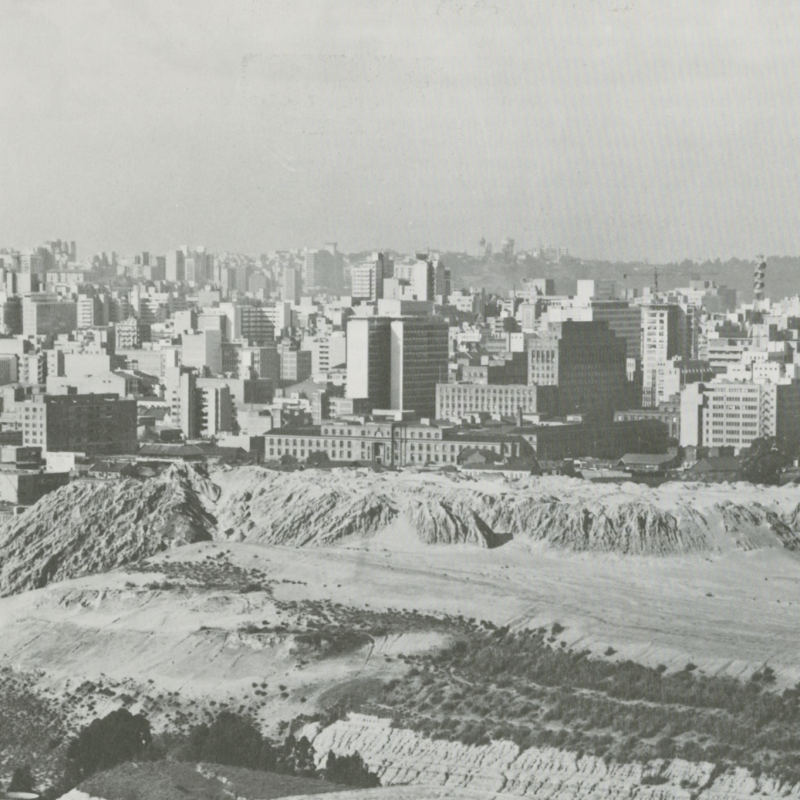
William Kentridge: Creative Machines
William Kentridge puts to use a diversity of ‘creative machines’ in making work. He methodologically rethinks drawing, as an unfinished process, a means of collecting and generating iconography, with the aim of maximizing narrative amplitude that goes beyond the limits of graphic representation by resorting to sound and cinematography.
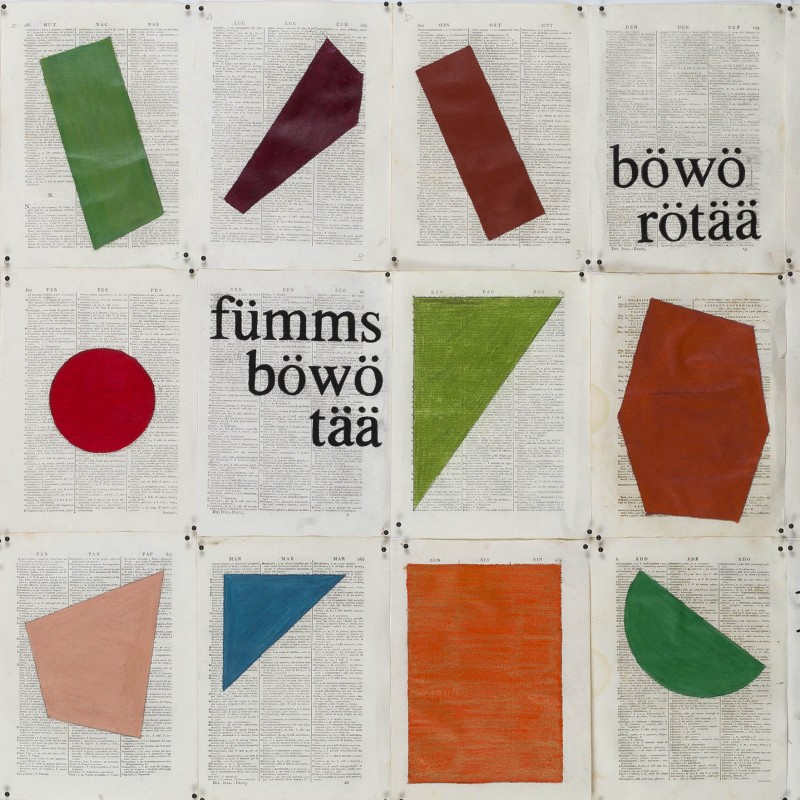
Stumbling to Utopia
“Why continue with these gestures, with these drawings, these words, in the face of their imminent failure? Because without some idea of utopia, of a rescued world implicit not just in these gestures but in the act of making a drawing, a performance, a speech – without this we feel a gap, a hollow.” WK, 2016
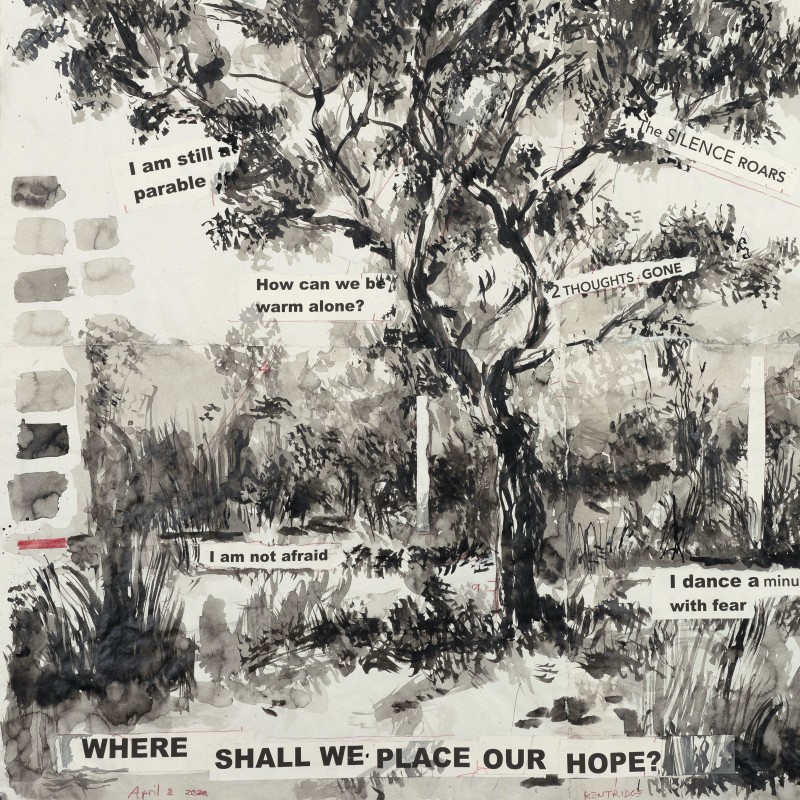
Listening to the Trees
An anecdotal account of the making of the book “Waiting for the Sibyl” and a consideration of Kentridge’s ongoing series of tree drawings, by book designer Oliver Barstow
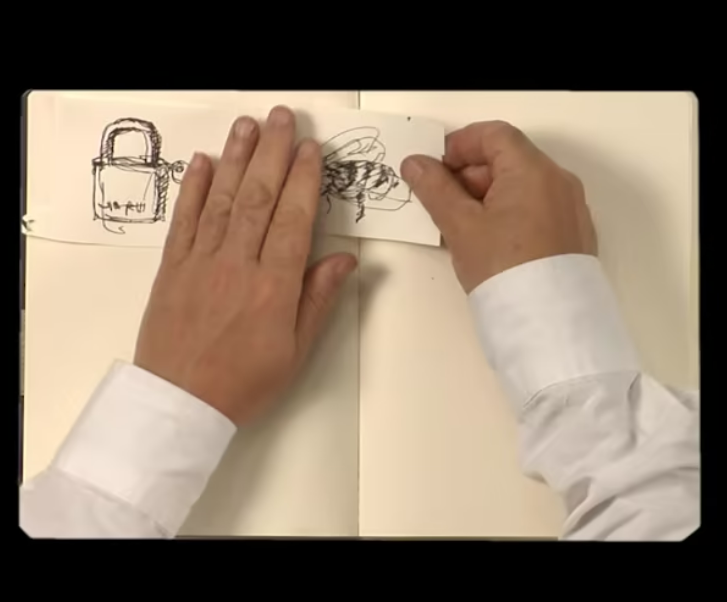
9 WORDS and one more
Making art is a uniquely human endeavour and an artist, the maker of art, is someone who distills what they feel and think about the world and expresses this visually. This requires one to read, to see, to listen, to feel, to question and be curious; to know, and yet to doubt; to have humility and to be brave.
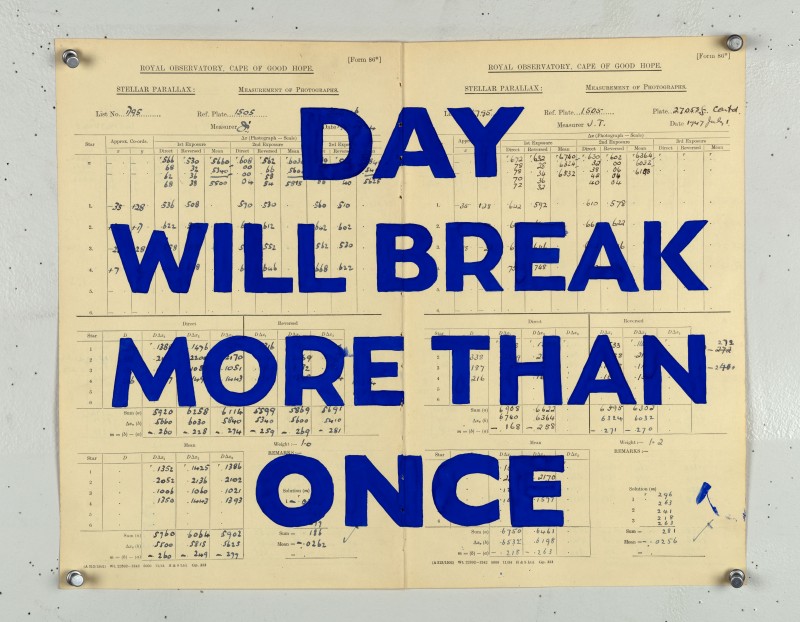
All so different from what you expected
Things which are obvious in studio practice, like uncertainty, doubt, provisionality, are not about the COVID pandemic. They are themes I have worked on for many years – but these themes in the outside world have become much more present in these months.
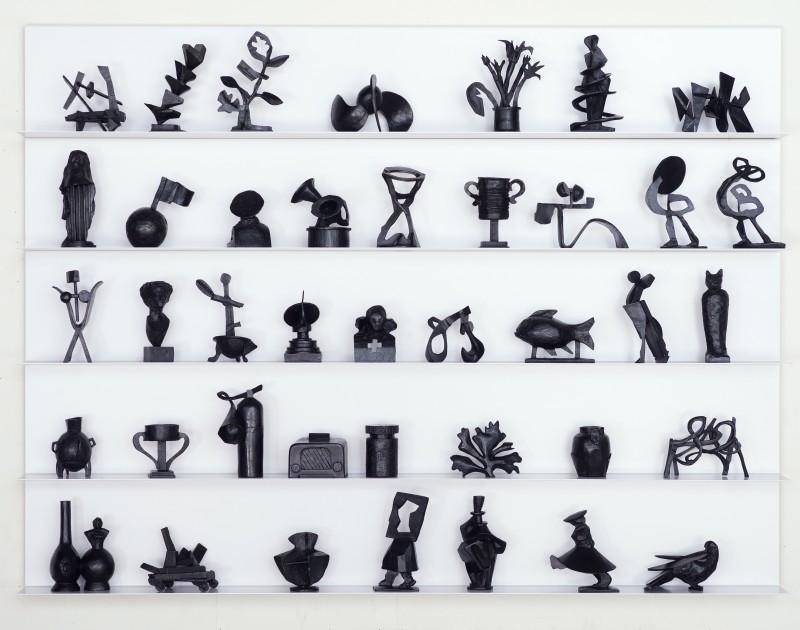
Cursive
Cursive is the third set in a series of small bronze glyphs, following “Lexicon” (2017) and “Paragraph II” (2018). The glyphs started as a collection of ink drawings and paper cut-outs, each on a single page from a dictionary.
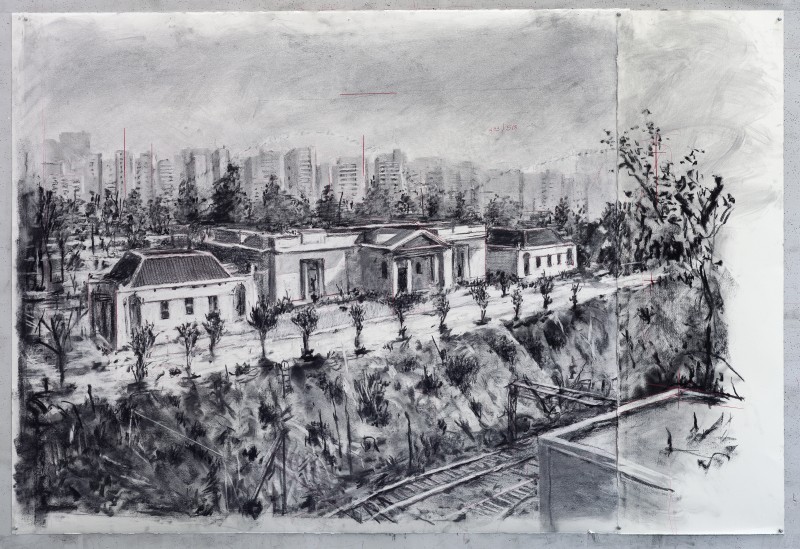
Edifice
This collection of drawings, made for the films “Sobriety, Obesity and Growing Old”, “Stereoscope”, “Tide Table”, “Other Faces”, “City Deep” and “What will come, has already come”, focuses on Kentridge’s use of architecture in order to establish place within the narrative of his films.
